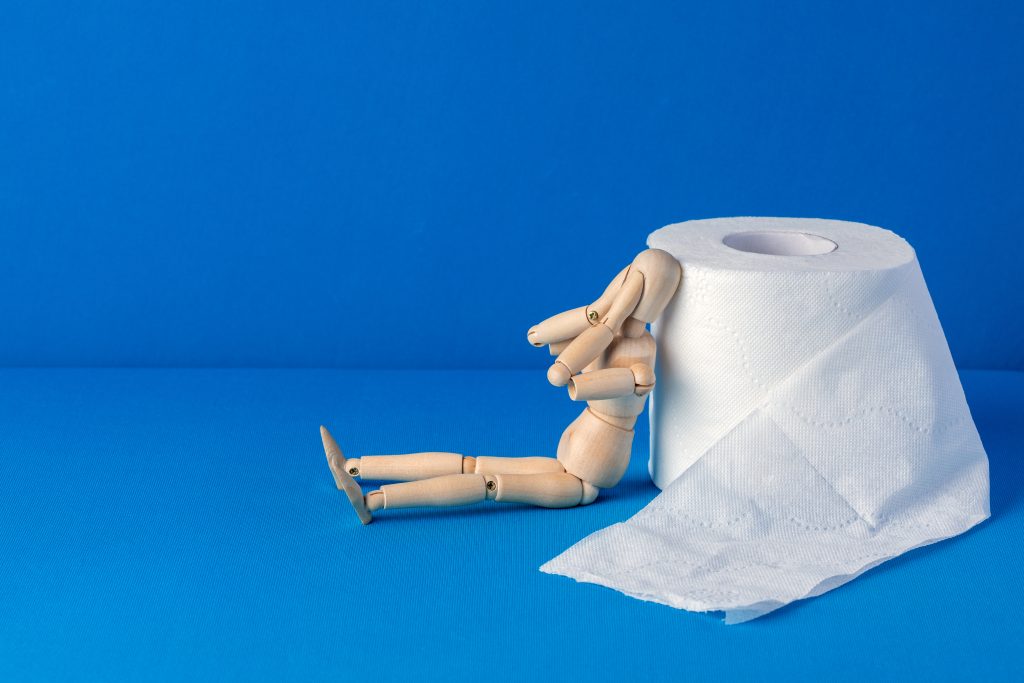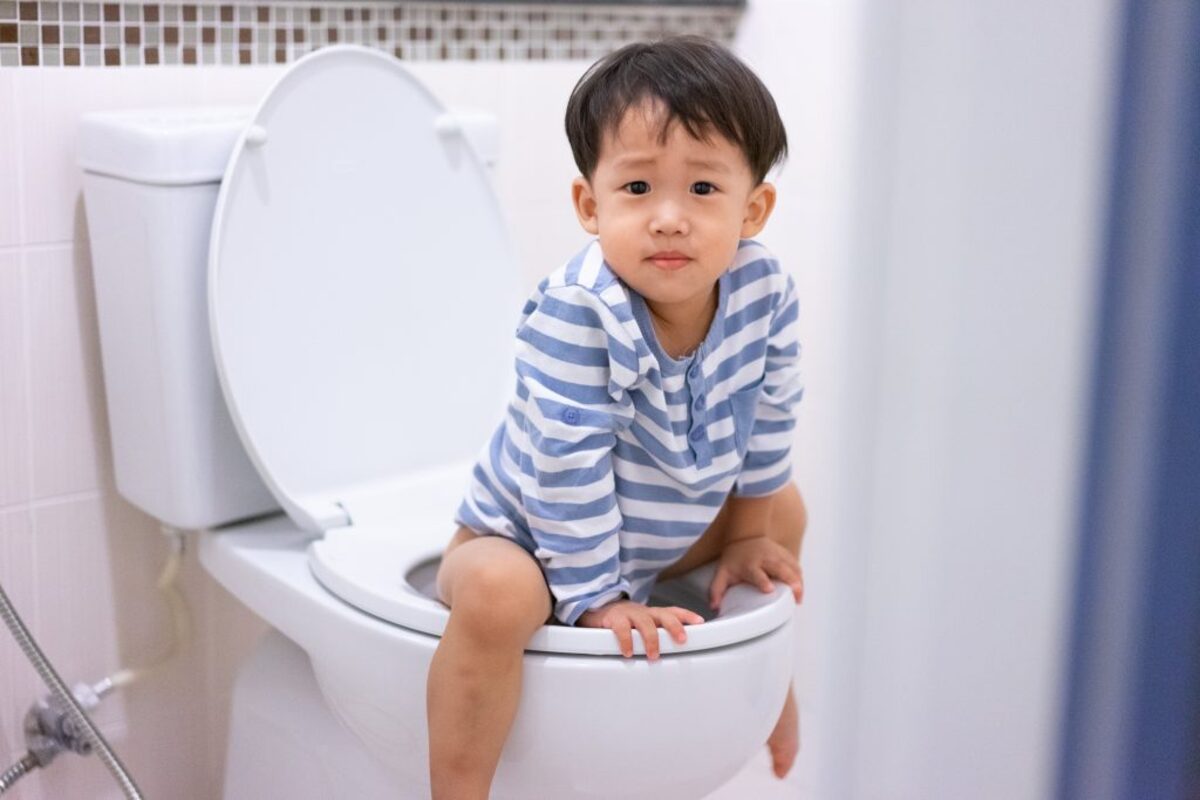blog, Constipation, Health
What is Constipation?
Constipation is a very common health problem not only in our country, but around the world. It’s a subject that’s been investigated and asked a lot about as often as it is. In this article, you can find answers to questions about constipation.
Constipation is characterized by abdominal pain, indigestion, swelling and gas problems that begin with inability to go to the toilet in our mind. However, the daily ability of individuals to go to the toilet depends on the nutrients, stress and fatigue consumed during that day. Therefore, it should be distinguished from the constipation of the individual’s life or the fact that they cannot go to the bathroom for the day alone.
Constipation is the case of individuals who go to the toilet once a week or more often.
Constipation is also one of the symptoms of IBS disease. Therefore, it is important to diagnose the failure of other IBS symptoms to not to confuse the constipation problem with IBS disease.
Table of Contents
What is Chronic Constipation?
Chronic constipation is a functional intestinal disease, with an extreme difficulty on going to the bathroom and a feeling of not being able to fully relax.
The symptoms have to continue for the last three months to diagnose chronic constipation.

Causes of Constipation
There could be many individual or external factors affecting our intestines and metabolism. The constipation problem can occur under these effects, or it can be a symptom of a different disorder.
Irritable bowel syndrome can be seen as a dominant constipation in some individuals. Therefore, the symptoms should be thoroughly monitored when diagnosing the individual.
-
Food Ingredients
The content of the food we consume can also cause constipation problems. Fiber, water, sugar and oil ratio are factors that affect the stool consistency at the end of the digestive system. As the stool changes its consistency, it becomes more difficult or easier to pass through the intestines. This can lead to a healthy toilet habit or conditions such as diarrhea, constipation.
Not only does the nutrient change the shape of the stool, but the reaction of our body, especially the reaction of our intestines, is different. Each of us has a unique intestinal structure and metabolism, like our fingerprints. That’s why our response to food is different. While some foods can cause damage to some individuals’ intestines and cause constipation, some foods can regulate the digestive system.
-
Stress
It’s not surprising that stress is effecting our bowel pattern. The longest nerve in our body, provides a connection between the bowel and the brain. The Vagus nerve limit extends from the pituitary glands secreted by serotonin hormones that regulate our daily emotional state to our intestines. So the changes in the mood directly affect the contractions of our bowel muscles.
There are a lot of routines in our daily lives that are a source of stress.
- Busy work pace
- Crowded cities
- Irregular sleep hours
- Irregular lunchtime
These routines, which are part of our lives, can also change our toilet habits from time to time. The main reason for this change is that our biological clock is changing.
Like all living beings, the human body needs to build a healthy cycle. When this cycle breaks, it comes with stress and constipation.

What Are the Symptoms of Constipation?
-
Having Trouble Going to the Bathroom.
The frequency of going to the toilet of the individual has changed. Although the frequency of people with a healthy bowel going to the toilet is one or two times a day, individuals with constipation can go to the toilet more rarely.
Sometimes individuals cannot go to the toilet for months without using medications or herbal supplements. But constantly going to the toilet with a supplement in this way is not a sustainable situation. In the following periods, the sensitivity of the intestinal structure to these supplements begins to decrease. After a while, although individuals have tried many supplements, they don’t see any positive results.
-
Lack of a Feeling of Relief
Individuals with constipation problems struggle with the problem of not being able to go to the toilet, and on the other hand, they do not feel relieved even if they go to the toilet.
The feeling of constantly having to go to the toilet affects the individual’s daily routines. The impact of his daily life begins to reduce his quality of life.
-
Abdominal Pain
With constipation, it begins to put pressure on the walls of the intestine, as feces can not be excreted. We feel this condition in the form of pain. The constant feeling of pain naturally causes stress. The table is aggravated by the stress caused by abdominal pain due to constipation, as if it has entered a vicious circle.
-
Bloating
Stool that presses on the walls of the intestine is expected to cause bloating in the abdomen and is quite an uncomfortable condition.
Bloating caused by constipation in individuals is similar to weight gain when viewed from the outside. But this weight gain is not an increase in adipose tissue due to high calorie intake, but the accumulation of feces that cannot be removed from the intestines.
How Is Constipation Diagnosed?
Constipation is diagnosed both by subjective criteria related to the individual’s metabolism and toilet habits, and by objective methods such as blood tests, stool analysis.
We should take into account medications and other diseases that can cause constipation in the treatment. In addition, laxative-acting supplements and medications mask constipation, so such supplements cause an incorrect diagnosis.
Let’s give examples,
- Frequency of defecation
- The hardness of feces
- Difficulty defecating
- Abdominal pain
- Bloating
What Are the Methods of Treating Constipation?
The purpose of treatment,
- Eliminate symptoms
- Not experiencing symptoms again
- The individual should first be educated about intestinal health.
- Avoiding drugs and supplements that cause constipation
- Consuming enough fiber with nutrition
- Going to the toilet regularly every day.
In addition, the fiber content of supplements used is important because the amount of fiber that individuals should consume in the treatment of constipation has increased.
Non-soluble and non-fermented fiber sources increase the volume of feces and stimulate intestinal motility. Thus, it accelerates the passage of feces through the intestine.
Soluble and fermentable fiber sources are effective in modulating intestinal bacteria because they have a probiotic effect. Although it has side effects such as bloating and gas, it is recommended to consume up to 20-30 g of fermented fiber sources per day.
But there is always the possibility that individuals with extremely slowed intestinal motility and experiencing obstruction may not benefit from fiber consumption.
It is not right to use laxatives uncontrollably if fiber consumption has not had an effect on your constipation problem. However, long-term and unconscious use of laxative-acting drugs causes the intestine to become resistant to the drug. There is no longer any benefit from these drugs either
Let’s give some example of the ingredients of osmotic laxatives:
- Lactulose
- Laktitol
- Mannitol
- Sorbitol
Osmotic laxatives reduce absorption in the intestine and can cause the excretion of feces as a liquid. It is also known that this group of laxative drugs has a negative effect on kidney function at a later age. That is why its use should be paid attention to in elderly people and patient with renal failure.
How Is Constipation Treated?
In order for constipation to improve and we no longer have problems defecating, there are certain points that need to be taken care of.
As with various treatment methods used for all diseases, the goal of treatment for constipation is primarily to improve the symptoms of the disease and prevent recurrence.
In diseases of the digestive system, such as constipation, we should first contact a gastroenterology doctor. The doctor asks certain questions and conducts tests.
- The drugs used are
- Diet
- Structure of the intestine
- Different metabolic diseases that have already been diagnosed
What is the Importance of Microbiome Structure in Constipation?
The doctor’s recommendation would be diet or medication. But in addition to these, another important point is that the structure of the intestine and the microbiome of the intestine are individual. The structure of the microbiome can vary from person to person, and the individuals that each of us needs are actually the nutrients that our microbiome structure needs.
We are faced with many situations where the use of supplements and general nutritional recommendations also do not work. Because our intestinal structure and our ability to metabolize nutrients are different for each of us. It differs from individual to individual, like a fingerprint.
In constipation, the nutritional needs of bacteria living on the intestinal walls are important. This bacterial structure is only part of the microbiome.
Improving the microbiome structure is the most effective treatment for constipation. In order for the bacteria contained in this structure to be in ideal balance, each of them needs certain nutrients. A detailed analysis of these nutrients allows you to achieve treatment success much faster and more effectively than elimination diets performed by trial and error.
We can eliminate stomach and intestinal problems such as constipation, diarrhea, gas, bloating by regulating our microbiome structure. The trillions of tiny living creatures in our microbiome affect many factors such as absorption, intestinal motility, immune system, metabolism. A healthy gut means a healthy body.
ENBIOSIS examines the intestinal microbiome in detail with its microbiome analysis.So, the nutrients that each bacterium needs to maintain body balance are revealed. They also individually score nutrients that intestinal bacteria do not need or even have a negative effect on. In this way, we are preparing an individual nutrition guide.
The nutrients that each of us needs for our intestinal health are different. The foods described in the individual nutrition guide are organized by expert ENBIOSIS dietitians. Let’s give examples of other factors that should be considered besides the diversity of nutrients:
- Quantity
- Number of meals
- Combinations of nutrients
And you can have healthier intestines by getting to know your body.
What Is Good for Constipation?
There are different causes of constipation and different methods of treatment.
- Consumption of fibrous foods
- Plenty of water consumption
- Physical exercise
- Stay away from stress
Of course, besides these recommendations, it is useful to get to know our body individually. many factors are effective, such as:
- Our disease history,
- The drugs we use,
- Our intestinal structure
At this point, we first determine the causes of the disease and recommend individual treatment.
What Is Good for Constipation in Pregnant Women?
Constipation during pregnancy is a fairly common problem. To a large extent, the change in the hormonal balance in the body provokes the problem of constipation.
In addition to hormonal and metabolic changes that occur with pregnancy, there are studies that show that some differences in bowel layout may occur.
When treating the problem that occurs with pregnancy, we should remember that changing the hormonal balance is a healthy state for both the mother and the baby, and it should not be interfered with.
Mother,
- Should avoid supplements containing chemicals that will affect the baby
- Eat a balanced and regular diet
- She should know her body and her metabolism
- Shee should consume foods with a high fiber content

What Is the Solution to Constipation in Infants?
Constipation in infants usually begins with the transition to solid food. In this case, the nutrients provided to the baby are very important. Because it is very important to feed both to make the baby’s current condition better, and to make the basics of the microbiome structure that will develop with him throughout his life healthier.
There can be many reasons for the problem in infancy.
- The microbiome structure of the baby develops more slowly in cesarean deliveries than in normal births
- The fact that the baby has not received enough breast milk negatively affects the health of the intestine
- After switching to additional nutrition, giving foods that are not suitable for the baby’s age negatively affects baby’s metabolism, as well as intestinal health.
In order to solve the problem of constipation, it is necessary to pay attention to the foods that the baby will consume after switching to solid food. Because the baby’s metabolism is still developing and he should not be fed like an adult individual.
What Is Good for Constipation in Children?
We can explain the problem of constipation in childhood in 2 ways.
- Lack of proper nutrition for intestinal health
- Insufficient physical activity
But besides all this another important criterias are;
- Whether the child has a metabolic disease or not
- The medications the chil uses, the way she gives birth
- Time to get mother’s milk
It is very important for the treatment of children who have constipation problems to improve their quality of life and to acquire the habit of going to the toilet in a healthy way at an early age.
A few suggestions for children who have constipation problems to get back to healthy bowel order;
- It is necessary to observe the child’s eating habits
- The child needs to receives the calories he needs for development
- We need to ensure that the child receives the vitamins and minerals he needs for his immune system and intestinal order with healthy food.
Frequently Asked Questions About Constipation
We have compiled for you a few questions that you may have about constipation, which is quite common in society and a lot of questions about its treatment.
I’m Constantly Suffering from Constipation what should I do?
Chronic constipation is another problem sometimes we are facing, which is constantly ongoing. In such cases, in order to maintain intestinal health, it will be the most correct approach to listen to our body first and try to understand the cause.
In general, individuals with constipation problems are prone to using laxative-effective herbal supplements or medications. However, these supplements cause damage to the intestines in the long term and we may encounter different metabolic problems. That is why we should definitely not use a supplement containing laxatives without a doctor’s recommendation.
Does Banana Cause Constipation?
The fact that bananas, which have become an urban legend, cause constipation is actually not completely accurate information.
A banana is a fruit with a fiber and sugar content that varies depending on the level of ripening. The sugar content increases as it matures, while the fiber content decreases as it matures.
Banana is suitable for the microbiome structure of some individuals while it is not suitable for the microbiome structure of some individuals. With a detailed analysis, you can find out which other nutrients are right for you.
Does Coffee Cause Constipation?
We should mention about cofee. The fact that coffee disrupts the intestinal order and causes constipation does not apply to every individual.
Recognizing our microbiome structure, which is a very important point, allows us to find out if coffee and other nutrients are suitable for our intestinal health. You can also have a detailed microbiome analysis done to recognize your microbiome structure that directly affects intestinal health.
Does Milk Cause Constipation?
Let’s talk about milk. Milk may not be suitable for individuals with lactose sensitivity. For this reason, an individual should search the underlying cause of problems such as bloating, gas, constipation, or diarrhea that they experience. If you have lactose sensitivity determined in the process of these studies, then you can limit the consumption of milk.
REFERENCES
https://guncel.tgv.org.tr/journal/68/pdf/100499.pdf
Bharucha, A. E., & Lacy, B. E. (2020). Mechanisms, evaluation, and management of chronic constipation. Gastroenterology, 158(5), 1232-1249.
Ohkusa, T., Koido, S., Nishikawa, Y., & Sato, N. (2019). Gut microbiota and chronic constipation: a review and update. Frontiers in medicine, 6, 19.
https://www.youtube.com/watch?v=3_40-kBmRdk&list=PLtKxqa6NEChoOYQMJW0CkGxBh-ZKS0Jua&index=2


 العربية
العربية Русский
Русский Português
Português 中文 (中国)
中文 (中国) Türkçe
Türkçe Spanish
Spanish Polski
Polski

